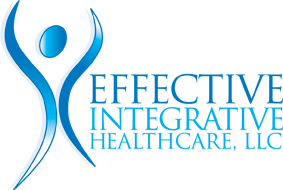THE FOUR PHASES OF CARE
It is essential to understand the stages of chiropractic care because they are unique relative to those of other health-care disciplines. Chiropractic addresses the core physiological and biomechanical aspects of the body. This process can take some time to correct problems without drugs or surgery and some conditions can be treated in a few visits, while others may take longer.
Here are the 4 major phases of chiropractic care.
RELIEF CARE
Goals
Most patients will begin treatment here because of suffering from an ache or pain. There are generally three different recovery tracks. A few patients get a little worse before getting better. This is especially true of patients who have been in an auto accident or suffered other types of recent trauma. Some patients respond more quickly, but most of our patients show steady progress, each visit building on the ones before. Relief is obtained when spasm and swelling are reduced. Frequency is essential to obtain this goal in a short period of time. DON’T MISS YOUR APPOINTMENTS.
It’s important to note that long term changes with muscles and tendons will not be achieved at this point. You’ll be feeling better, but in order to prevent a relapse, we must retrain supporting muscles, improve biomechanics, and stabilize spinal function to heal and optimize your spine fully.
CORRECTIVE CARE
Goals
- Reposition Joint to Restore Structure
- Heal Nerve Root
- Increase Range of Motion
- Restore Joint Function
- Restore Function to Muscles
The goal of correct care is to now work on flexibility and strength to change the way your body functions long term. The frequency of office visits is reduced over a period of two to six weeks. In order to get the most out of your treatments, care may be supplemented by rehabilitation exercises, nutrition, and modification of daily habits.
STRENGTHENING CARE
Goals
- Rehabilitate Muscles
- Enhance Strength
- Strengthen Joints
- Reeducate Neuromuscular Function
- Increase Muscular Endurance
Once your muscles, tendons, ligaments, and joints are functioning correctly, we must strengthen or stabilize so that this change will last. Our frequency of treatment is much less as we monitor your progress with home exercise.
It is important to remember that many of the conditions for which people seek care have developed over many years; therefore, correcting these problems is a true rehabilitative process. It helps to understand that it takes time to correct these conditions.
Once your discomfort has subsided, you may think all is well and choose to abandon your efforts. However, if you end your care before fully healing the muscles and soft tissues, you can invite a relapse. This is a mistake many people make, and it sets them up for recurring health issues.
It’s hard to believe that, after all the time, effort, energy, and money put into correcting a problem, a patient would choose to forgo this relatively easy phase of care! As much as we’d love to see you in our office, we’d much rather assist you in maintaining your health rather than relieving your pain.
WELLNESS CARE
Goals
- Maintain Structural Integrity
- Reduce Muscular Stress
- Maintain Nutritional Balance
- Achieve Physical & Emotional Well-Being
If you continue the daily activities that promote stress and pain, a regular check-up of your spine will help you stay healthy and out of pain. This type of care is most effective after relief, or corrective care is completed
